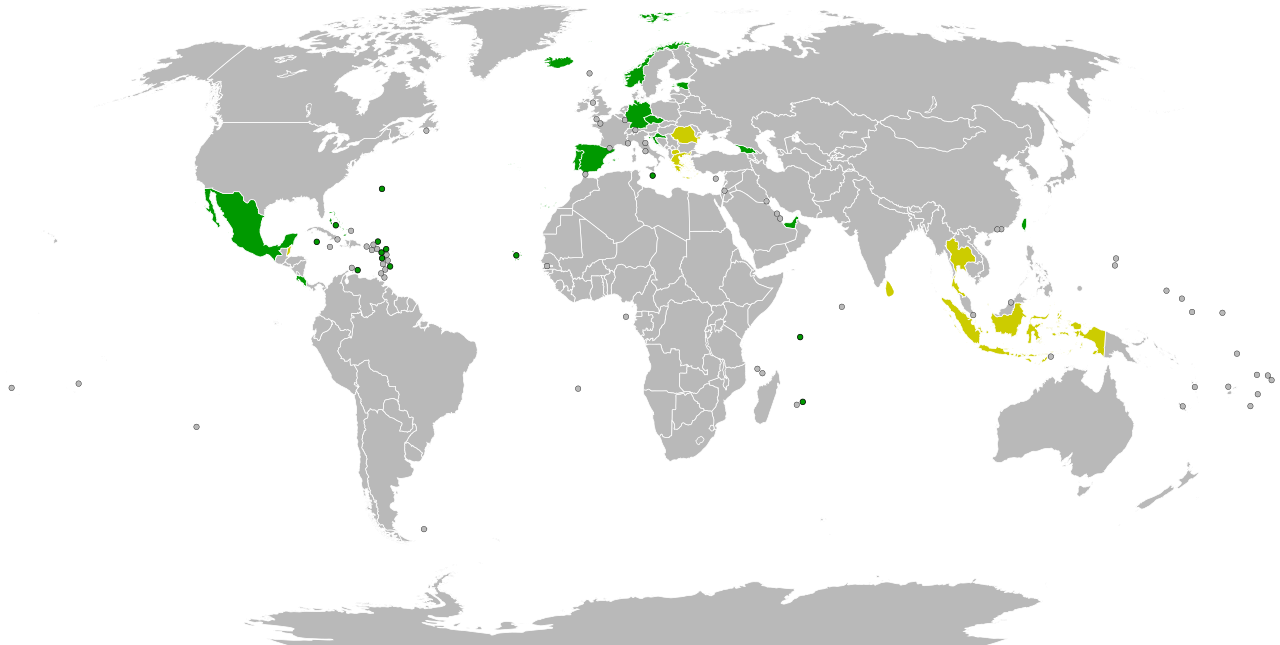For every New Yorker that loves the Big Apple, there’s another person that absolutely cannot stand the place. If it was up to them, they would rather live (and work) somewhere in the countryside or near the beach, in a house that has a big backyard with ample room for barbecues or garden parties, and where they wake up to the sound of tweeting birds in the morning instead of construction drills breaking through concrete.
These people live in New York City not because they want to, but because they signed an employment contract. They make Power Point presentations for investment banks, review student applications at local universities, or work for any of the thousands of other companies, big and small, that have set up shop within the city’s borders, and demand that their employees do the same. It’s a dilemma that many workers around the world can relate to, regardless of where they live.
Up until recently, the reality was that if you wanted to work somewhere, you had to live within driving (or commuting) distance of your workplace. Now, thanks in part to the COVID pandemic, more and more employers have opened up to the idea of remote work. Remote work not only enables employees to work from home, but from anywhere in the world. This means that all those unhappy New Yorkers could theoretically trade their cramped inner city apartments for a spacious Caribbean condo and still show up to work on time.
Digital nomad visas, explained
Sound appealing? All you need to do is ask for permission from your employer and fill out an application for a nomad visa. Working abroad, after all, is made possible by two actors: bosses and migration offices. When the pandemic began, many businesses wanted their employees back in the office as soon as possible. They feared that, without direct oversight, productivity would plummet. Numerous studies have since dispelled that fear, prompting major firms like Twitter to permit and encourage remote work even after COVID restrictions were lifted.
Governments, too, are facilitating work abroad through programs that are often referred to as “digital nomad visas.” A digital nomad visa is an immigration document that allows the recipient to stay within a certain country for a prolonged period of time. The allure of digital nomad visas is obvious: Employees can apply if they desire a change of pace and scenery. Digital nomad visas also offer a more culturally enriching experience than your typical vacation, giving employees time to fully immerse themselves in their new surroundings without having to put their careers on hold.

Of course, every country has their own unique entry requirements. Generally, digital nomad visa applications will ask for proof of income as well as remote employment. These measures help to ensure that employees — also called “digital nomads” once they eventually venture out abroad — can support themselves during their stay without having to compete for local jobs. (More on that in a moment). For obvious reasons, digital nomads are also required to obtain travel insurance. Most applications cost around $1,000 and allow for stays between 6 months and 2 years with the possibility of extending one’s visa once time is up.
The unexpected benefits of nomad visas
Digital nomads are not the only people who welcome the idea of nomad visas. Journalists, psychologists, and economists have all identified ways in which these immigration programs benefit the global economy. First and foremost, nomad visas make it easier than ever for workers to move between different parts of the world. This is especially salient for places with strict immigration policies such as Japan, where employees and their family members often have to wait years before receiving work or residence permits.
Critics of nomad visa programs fear that foreign workers may snatch up local jobs, but an article published in Harvard Business Review contests this claim on multiple grounds. “Digital nomads invest their time and money in the local economy,” the article explains, “without taking local jobs, and build bridges with local knowledge workers — a win-win for both remote workers and local communities.”
The article’s author, a Harvard Business School professor named Raj Choudhury, spent years studying the untapped potential of digital nomad visa programs, which he believes could act as catalysts for knowledge and resource flows between different regions of the world. “My longstanding research on geographic mobility and innovation,” the article continues, “has shown that short-term travel and even short periods of co-location with geographically distant colleagues can help workers access information and resources that can help grow new ideas and projects, which benefits both the mobile worker and their organizations.”
How working abroad affects your mental health
The only noteworthy downside of digital nomad visa programs is the impact that working in a foreign country could have on your mental health. A 2018 study from Columbia University’s Mailman School of Public Health found that employees who travel two weeks or more per month for their work are more likely to suffer from anxiety and depression than employees who remain at home or in the office. These conditions are compounded by other problems we encounter on the go, including unhealthy eating and drinking, lack of exercise, and sleep deprivation.
Whether these conditions also apply to digital nomads is unclear. Anecdotal evidence, however, paints a somewhat alarming picture. Writing for Insider, psychologist and long-time digital nomad Carolin Müller confesses that the experience of working abroad is not always a positive one. Outside your comfort zone and surrounded by fresh stimuli, it can be difficult to stay on top of work and get the rest you need.
On top of this, the line that separates freedom from loneliness can at times be razor-thin, and employees looking for the former sometimes end up with the latter. So, there is a risk, but the risk might be worth it. As the late chef, television host, and original digital nomad Anthony Bourdain once said:
“Travel isn’t always pretty. It isn’t always comfortable. Sometimes it hurts, it even breaks your heart. But that’s okay. The journey changes you; it should change you. It leaves marks on your memory, on your consciousness, on your heart, and on your body. You take something with you. Hopefully, you leave something good behind.”
This article was reprinted with permission of Big Think, where it was originally published.






